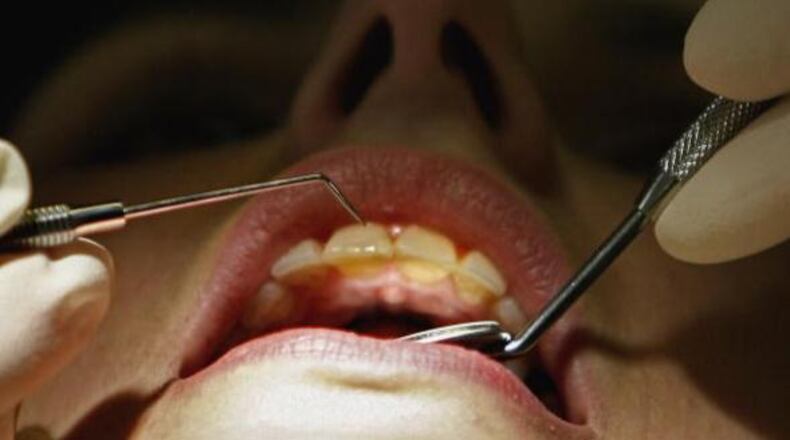For more than five years, Mason Motz never uttered a word.
That all changed after a visit to the dentist a year ago, the Fort Worth Star-Telegram reported.
Mason's parents, Dalan and Meredith, were told his inability to speak was related to Sotos syndrome, a genetic disorder that affects growth and development.
Mason, 6, could make sounds, but was unable to form words. He started speech therapy when he was 1. Different pediatricians and other experts had no answers.
To communicate, Mason used boards with different objects on them to convey wants and needs.
In November 2017, Mason had several cavities and went to see dentist Amy Luedemann-Lazar, who specializes in seeing patients with special needs.
She quickly diagnosed what no one else had noticed, Mason had ankyloglossia, which causes his tongue to stay close to the floor of his mouth. He could not speak because he was tongue-tied.
Luedemann-Lazar used a laser to loosen the lingual frenulum, the band of tissue that holds the tongue to the floor of Mason's mouth. The surgery took a matter of minutes, KHOU reported.
"We did detect a tongue-tie," Luedemann-Lazar told "Inside Edition." "Mason was not nonverbal; he was just unable to speak. He had been in speech therapy for years and no one had ever checked under his tongue."
Later that night Mason spoke.
“Mama, I’m hungry,” he said.
Since then he has not stopped. He speaks in full sentences, sharing the events of the day. He can count to 100, recite the alphabet and even use the word “no.”
"So there's that," Dalan told the Star-Telegram. "He always had the words inside him. It wasn't an inability to learn the words or form the words. It was this physical inability to make them come out of his mouth."
The surgery also helped Mason with other maladies.
"It's like night and day. He doesn't have choking episodes anymore; he's eating different types of food," Meredith told "Inside Edition." "He's behaving much better at school. His behavior was a problem, because he was getting poor quality of sleep at night, he was constantly tired and was not able to express himself. He doesn't snore anymore. He doesn't have sleep apnea anymore."
About the Author
The Latest
Featured


